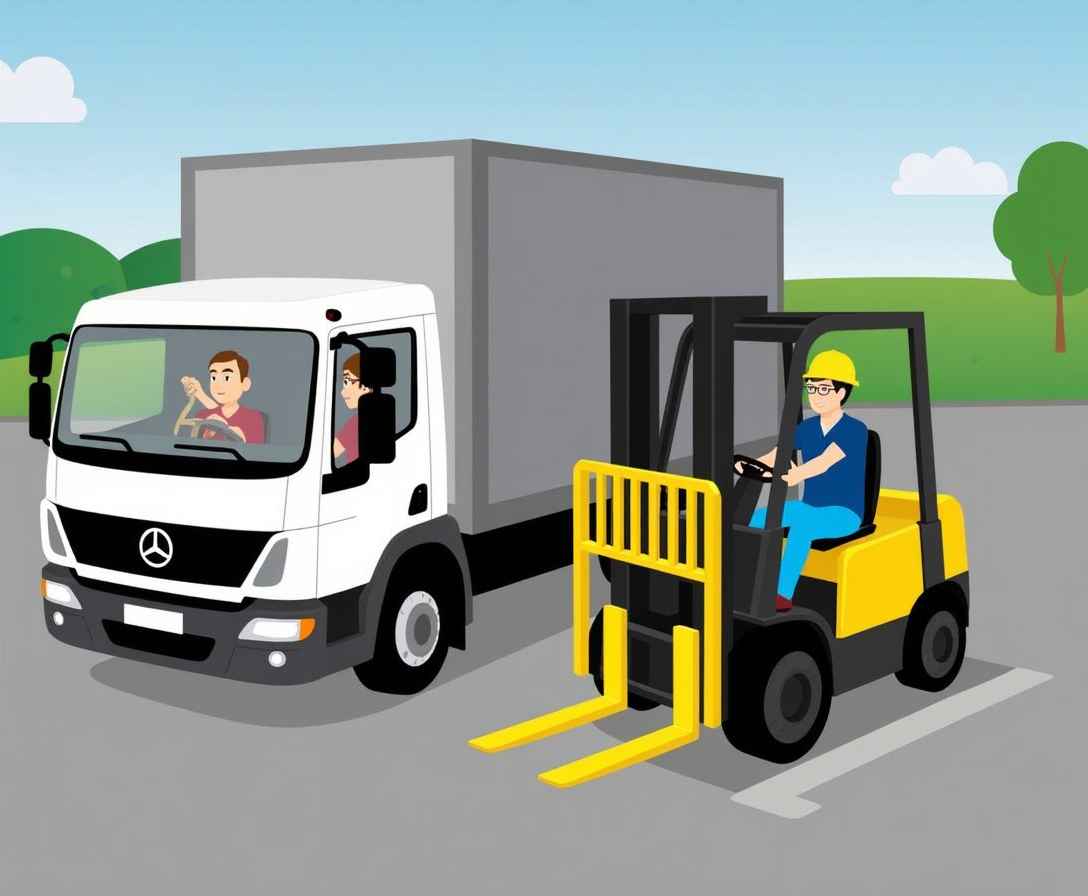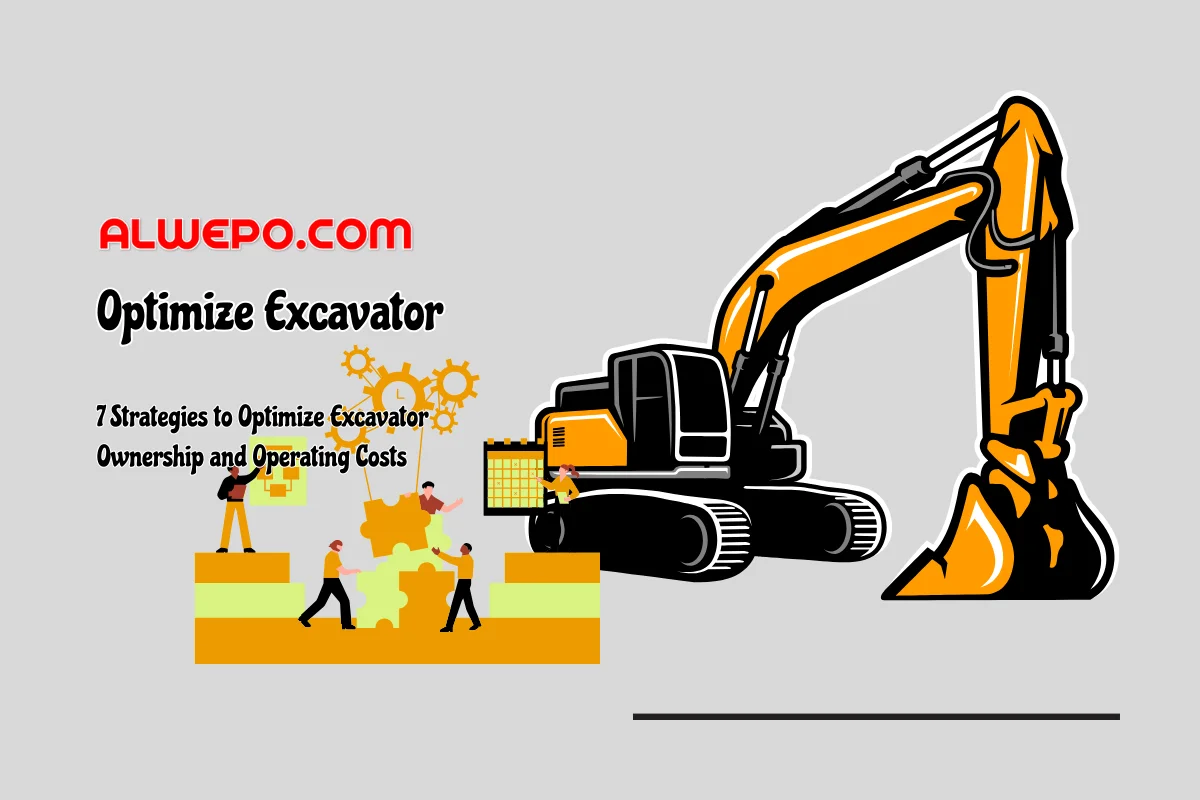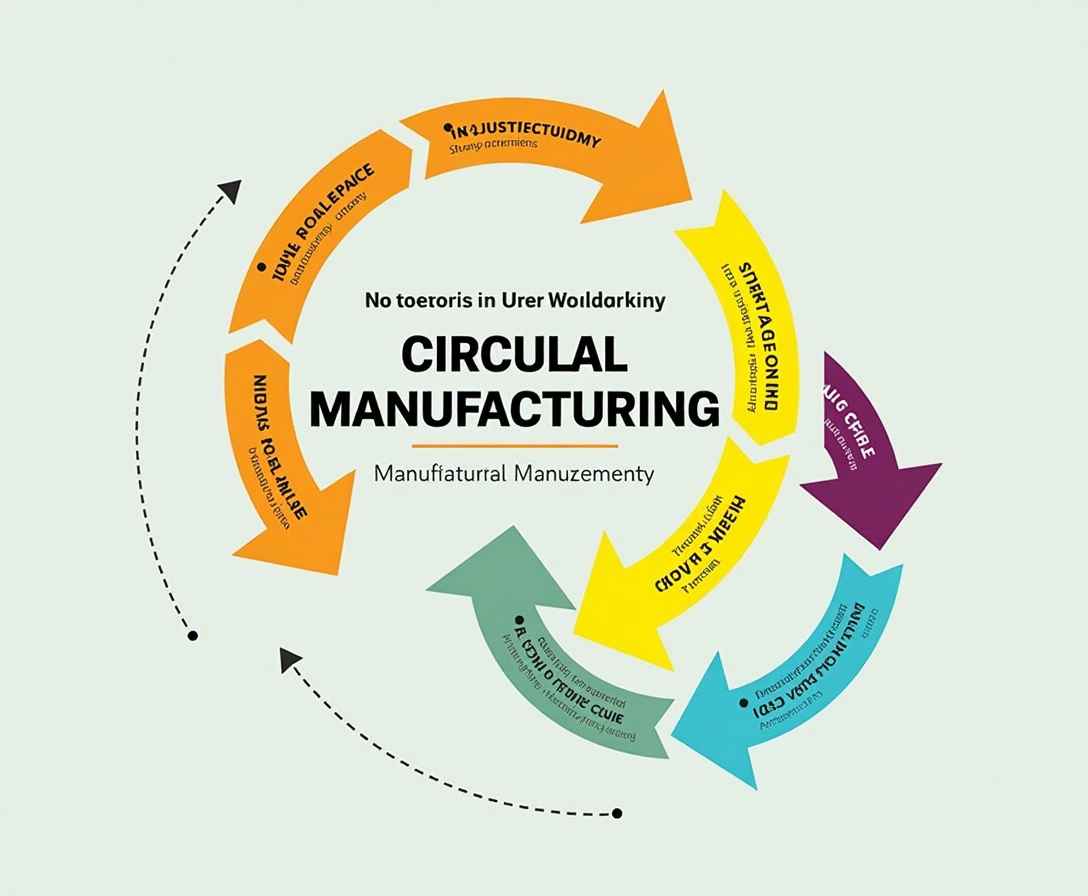alwepo.com, Training and Certification for Heavy Equipment Operators – The world of heavy equipment operation is vast, encompassing a range of machinery essential for construction, mining, forestry, and other industrial sectors. The need for skilled heavy equipment operators is ever-growing, driven by infrastructural development and the expansion of various industries. This guide will explore the journey of becoming a certified heavy equipment operator, detailing the training programs, certification processes, job prospects, and essential skills required. Our aim is to provide an in-depth understanding of what it takes to excel in this field, ensuring your path to certification is clear and achievable.

What is a Heavy Equipment Operator?
Heavy equipment operators are skilled professionals trained to operate various types of machinery used in construction, excavation, and other industrial tasks. These machines include bulldozers, excavators, loaders, cranes, and forklifts. Their role is crucial to the success of construction projects, infrastructure development, mining operations, forestry activities, and more.
Key Responsibilities:
- Operating Machinery: Safely and efficiently handling machinery to perform tasks such as digging, lifting, grading, and transporting materials.
- Maintenance: Performing routine maintenance checks and minor repairs to ensure equipment is in good working condition.
- Safety Compliance: Adhering to safety protocols and regulations to prevent accidents and ensure a safe working environment.
- Precision Work: Maneuvering machinery with precision to achieve specific project goals, often in challenging or confined spaces.
- Team Coordination: Communicating effectively with team members and supervisors to coordinate tasks and ensure project timelines are met.
Importance of Certification
Certification is a critical component for heavy equipment operators for several reasons:
- Safety:
- Certified operators are trained in safety protocols, reducing the risk of accidents and injuries on-site.
- Knowledge of proper handling techniques and safety measures protects both the operator and other workers.
- Employment Opportunities:
- Many employers require certification as it ensures that operators possess the necessary skills and knowledge.
- Certified operators are often preferred over non-certified ones, increasing job prospects.
- Legal Requirements:
- In many regions, certification is mandatory to comply with local and federal regulations.
- Ensures operators meet the standards set by regulatory bodies, preventing legal issues for both the operator and the employer.
- Professional Credibility:
- Certification enhances an operator’s professional credibility and demonstrates their commitment to the industry.
- Indicates a high level of competence and reliability, making operators more competitive in the job market.
Training Programs
Training programs for heavy equipment operators are designed to provide comprehensive education and hands-on experience. Here are the types of training programs available:
- Vocational Schools and Community Colleges:
- Offer comprehensive programs that include both classroom instruction and hands-on training.
- Courses typically cover a wide range of equipment and operational techniques.
- Apprenticeship Programs:
- Combine on-the-job training with classroom education, usually lasting several years.
- Apprentices work under the guidance of experienced operators, gaining practical experience while learning theoretical aspects.
- Private Training Centers:
- Provide focused training programs with flexible schedules.
- Often cater to specific types of equipment or industries, allowing for specialized training.
- Union Training Programs:
- Unions such as the International Union of Operating Engineers (IUOE) offer apprenticeship and training programs for members.
- These programs often include both theoretical and practical training, ensuring comprehensive education.
Key Components of Training
- Classroom Instruction:
- Covers theoretical knowledge such as equipment maintenance, safety protocols, and operational techniques.
- Provides a foundation of knowledge necessary for safe and efficient equipment operation.
- Hands-On Training:
- Offers practical experience on various types of equipment under the supervision of experienced instructors.
- Allows trainees to apply theoretical knowledge in real-world scenarios.
- Simulator Training:
- Advanced programs may include simulator training, allowing students to practice in a controlled, virtual environment.
- Helps trainees develop their skills without the risks associated with operating actual machinery.
- Field Training:
- Involves real-world training on job sites, providing valuable practical experience.
- Trainees work on actual projects, gaining insight into the day-to-day responsibilities of a heavy equipment operator.
Duration of Training
The length of training programs can vary depending on the type and comprehensiveness of the program:
- Short-Term Courses:
- Typically last a few weeks to a few months.
- Focus on basic skills and are often designed for entry-level positions.
- Certificate Programs:
- Can range from a few months to a year.
- Provide more in-depth training and cover a broader range of equipment and techniques.
- Apprenticeships:
- Often span 2-4 years.
- Combine extensive on-the-job training with classroom instruction, offering a thorough education and practical experience.
Certification Process
Certification is a critical step for heavy equipment operators, ensuring they possess the necessary skills and knowledge to operate machinery safely and efficiently. Here, we’ll break down the process of obtaining certification, choosing the right certification body, and maintaining your credentials.
Choosing the Right Certification
Selecting the appropriate certification body is crucial for your career. Here are some key organizations:
- National Commission for the Certification of Crane Operators (NCCCO)The NCCCO offers certifications for crane operators, signalpersons, and riggers. It is highly regarded in the industry for its comprehensive testing and strict standards.
Certifications Offered:
- Crane Operators: Mobile crane, tower crane, overhead crane, and articulating crane certifications.
- Signalpersons: Certification for those directing crane operations.
- Riggers: Levels I and II certifications for rigging professionals.
Benefits:
- Recognized nationwide.
- Enhances job opportunities and credibility.
- Focuses on safety and technical proficiency.
- National Center for Construction Education and Research (NCCER)The NCCER provides certifications for various equipment operators, including earthmoving, cranes, and concrete equipment. Their certifications are known for comprehensive training modules and rigorous testing.
Certifications Offered:
- Equipment Operators: Certifications for backhoes, bulldozers, excavators, loaders, and more.
- Specialized Equipment: Certifications for specific machinery used in construction and industrial settings.
Benefits:
- Widely recognized in the construction industry.
- Standardized training curriculum.
- Access to a network of training providers.
- Occupational Safety and Health Administration (OSHA)While OSHA is not a certification body, it sets essential safety standards that all training programs must follow. Compliance with OSHA regulations is critical for ensuring safety and legality on the job site.
Key Points:
- Sets federal safety standards for equipment operation.
- Training programs often include OSHA compliance training.
- Understanding OSHA guidelines is crucial for all operators.
Steps to Certification
- Complete TrainingEnroll in and complete a recognized training program. These programs are offered by vocational schools, community colleges, union training centers, and private institutions. Training typically includes both classroom instruction and hands-on practice.
Key Components:
- Classroom Instruction: Covers theoretical aspects such as equipment mechanics, safety protocols, and operational techniques.
- Hands-On Training: Practical experience with different types of equipment under expert supervision.
- Simulator Training: Some programs include simulator training for a controlled and safe practice environment.
- Gain Practical ExperienceAccumulate the required hours of hands-on experience. This step is crucial as it provides real-world exposure to operating heavy machinery. Apprenticeship programs are a common way to gain this experience, combining on-the-job training with classroom education.
Requirements:
- Hours required vary by certification body and equipment type.
- Experience must be documented and verified by a supervisor or trainer.
- Pass Written ExamsDemonstrate your theoretical knowledge of equipment operation and safety by passing written exams. These exams test your understanding of operational procedures, safety standards, and equipment maintenance.
Topics Covered:
- Equipment components and functions.
- Safety regulations and best practices.
- Troubleshooting and maintenance protocols.
- Pass Practical ExamsShowcase your practical skills in operating equipment by passing practical exams. These exams require you to demonstrate your ability to operate machinery safely and efficiently.
Skills Tested:
- Maneuvering equipment in various scenarios.
- Performing specific tasks with precision.
- Adhering to safety protocols during operation.
- Obtain CertificationUpon passing both written and practical exams, you will receive your certification. This credential verifies your competency and readiness to operate heavy equipment professionally.
Credentialing Bodies:
- NCCCO, NCCER, or other recognized organizations.
- Certifications may be specific to equipment types or general for multiple machines.
Maintaining Certification
- Continuing EducationEngage in ongoing training to stay updated on new equipment, technologies, and safety standards. Continuous learning is essential in the rapidly evolving field of heavy equipment operation.
Benefits:
- Keeps you informed about industry advancements.
- Enhances your skill set and employability.
- Often required to maintain certification.
- RecertificationMany certifications require periodic renewal through additional testing or continuing education credits. Recertification ensures that operators maintain high standards of proficiency and safety.
Requirements:
- Renewal periods typically range from 3 to 5 years.
- May involve refresher courses, exams, or practical demonstrations.
Skills Required for Heavy Equipment Operators
- Technical SkillsProficiency in operating various types of machinery is fundamental. Operators must understand how to start, maneuver, and stop equipment safely.
Examples:
- Operating bulldozers, excavators, loaders, cranes, etc.
- Understanding machine controls and functions.
- Performing specific tasks like digging, lifting, or grading.
- Mechanical SkillsUnderstanding equipment maintenance and troubleshooting is crucial to prevent breakdowns and ensure longevity. Operators should be able to perform routine checks and minor repairs.
Key Aspects:
- Regular inspection of machinery.
- Identifying and addressing common mechanical issues.
- Performing basic maintenance tasks like oil changes and filter replacements.
- Safety AwarenessAdherence to safety protocols is essential to prevent accidents and injuries. Operators must be vigilant and knowledgeable about safety practices.
Safety Practices:
- Following OSHA guidelines and site-specific safety rules.
- Wearing appropriate personal protective equipment (PPE).
- Conducting safety checks before and during operation.
- Physical StaminaOperating heavy machinery is physically demanding. Operators must have the stamina to handle long hours and physically strenuous tasks.
Physical Requirements:
- Strength and endurance for handling controls and manual tasks.
- Good vision and hand-eye coordination.
- Ability to work in various environmental conditions.
- Coordination and PrecisionSkillful maneuvering of equipment in tight or challenging spaces requires excellent coordination and precision. Operators must be able to control equipment accurately.
Critical Skills:
- Smooth and precise movements.
- Awareness of surroundings to avoid hazards.
- Ability to perform tasks with minimal disruption to the site.
- Communication SkillsClear communication with team members and supervisors is vital for coordinating tasks and ensuring safety. Operators often work as part of a team, requiring effective communication.
Communication Methods:
- Using hand signals and radio communication.
- Understanding and following verbal instructions.
- Reporting issues or hazards promptly.
Job Prospects and Career Growth
Heavy equipment operators are in demand across multiple industries, reflecting the broad application of their skills. Let’s delve deeper into the job prospects, salary expectations, career advancement opportunities, and challenges associated with this profession.
Industries Hiring Heavy Equipment Operators
- Construction: The Largest EmployerConstruction is the primary industry employing heavy equipment operators. These professionals operate bulldozers, excavators, loaders, and cranes to perform tasks like digging foundations, grading, and moving earth or materials. With continuous urban development and infrastructure projects, construction offers a steady demand for skilled operators.
Key Points:
- High demand due to ongoing and new construction projects.
- Opportunities range from residential buildings to large-scale infrastructure projects.
- Heavy equipment is essential for almost every phase of construction.
- Mining: Essential for Excavating and Transporting MaterialsIn the mining industry, heavy equipment operators handle machinery that extracts minerals and other geological materials from the earth. Excavators, dump trucks, and loaders are crucial in this sector.
Key Points:
- High demand in regions rich in natural resources.
- Operators must be skilled in handling machinery under challenging conditions.
- Safety and efficiency are paramount due to the hazardous nature of mining.
- Forestry: Machinery for Logging and Land ClearingForestry involves the management and harvesting of trees. Heavy equipment such as feller bunchers, skidders, and loaders are used to cut down trees, transport logs, and clear land.
Key Points:
- Essential for sustainable forestry operations.
- Operators need to be adept at working in rugged terrain.
- Environmental considerations and regulations play a significant role.
- Agriculture: Managing Large-Scale Farming MachineryIn agriculture, heavy equipment operators handle tractors, combines, plows, and harvesters. These machines are vital for planting, cultivating, and harvesting crops.
Key Points:
- Integral to modern farming operations.
- Operators help improve efficiency and productivity in farming.
- Seasonal work cycles influence employment patterns.
- Infrastructure Development: Building and Maintaining Roads, Bridges, and MoreInfrastructure development projects involve constructing and maintaining roads, bridges, dams, and other public works. Equipment like graders, pavers, and rollers are essential for these tasks.
Key Points:
- Government and private sector projects provide steady job opportunities.
- Crucial for economic development and public safety.
- Operators often work on long-term projects with significant societal impact.
Salary Expectations
Salaries for heavy equipment operators can vary based on experience, location, and the type of machinery operated.
- Entry-Level OperatorsEntry-level operators, who are just starting their careers, can expect to earn between $30,000 and $45,000 annually. These positions typically involve basic machinery and simpler tasks.
- Experienced OperatorsWith more experience, operators can expect higher salaries ranging from $45,000 to $70,000 annually. Experienced operators are proficient in handling a variety of equipment and can take on more complex tasks.
- Specialized OperatorsOperators who handle specialized machinery, such as cranes, can earn upwards of $75,000 annually. Specialization requires additional training and certification but offers higher pay and more job opportunities.
Career Advancement
- SpecializationSpecializing in specific types of machinery, such as cranes or graders, can lead to higher-paying positions and increased job security. Specialization often requires additional training and certification.
- Supervisory RolesExperienced operators can move into supervisory or managerial roles. These positions involve overseeing projects, managing teams, and ensuring safety and efficiency on-site.
- Training and InstructionAnother career path is becoming a certified instructor. Instructors train new operators, share their expertise, and contribute to the industry’s safety and efficiency.
- EntrepreneurshipSkilled operators with business acumen can start their own companies providing heavy equipment services. This path offers the potential for significant income and the opportunity to be your own boss.
Challenges and How to Overcome Them
- Safety RisksOperating heavy machinery comes with inherent safety risks. Continuous training and strict adherence to safety protocols are essential to mitigate these risks. Operators must stay updated on the latest safety guidelines and best practices.
- Physical DemandsThe job is physically demanding, requiring stamina and strength. Operators must maintain good physical fitness to handle long hours and strenuous tasks.
- Technological AdvancementsThe industry continually evolves with new technologies and equipment. Operators must stay informed and trained on the latest advancements to remain competitive and efficient.
- Seasonal WorkSome sectors, such as agriculture and construction, are subject to seasonal fluctuations. Exploring opportunities in different industries or regions can help ensure year-round employment. Networking and continuous skill development can also aid in finding consistent work.
Conclusion
Becoming a certified heavy equipment operator is a rewarding career choice, offering numerous opportunities across various industries. By completing the necessary training, obtaining certification, and continuously improving your skills, you can build a successful career in this field. Remember, safety and ongoing education are paramount to your success and longevity as a heavy equipment operator. Whether you are just starting or looking to advance your career, this guide provides the roadmap to achieve your professional goals.
FAQs
1. What are the prerequisites for enrolling in a heavy equipment operator training program?
Typically, you need a high school diploma or GED, a valid driver’s license, and the ability to pass a physical exam and drug test.
2. How long does it take to become a certified heavy equipment operator?
It can take anywhere from a few months to several years, depending on the type of training program and certification requirements.
3. Are there online courses available for heavy equipment operator training?
While some theoretical components can be studied online, hands-on training is essential and must be completed in person.
4. What are the job prospects for certified heavy equipment operators?
Job prospects are strong, with demand driven by ongoing infrastructure projects and industrial development.
5. How often do certifications need to be renewed?
This varies by certification body, but generally, certifications need to be renewed every 3-5 years through additional testing or continuing education.
By following this comprehensive guide, you can navigate the path to becoming a certified heavy equipment operator with confidence, ensuring a fulfilling and prosperous career in this dynamic field.















